Join Dr. Tsai and Dr. Kumar on a journey into novel treatment avenues for Fragile X syndrome. Learn how activating mGluR7 could be a game-changer, opening up uncharted therapeutic territory.
Read moremGluR
Correcting the Brain’s Emotional Memory Center
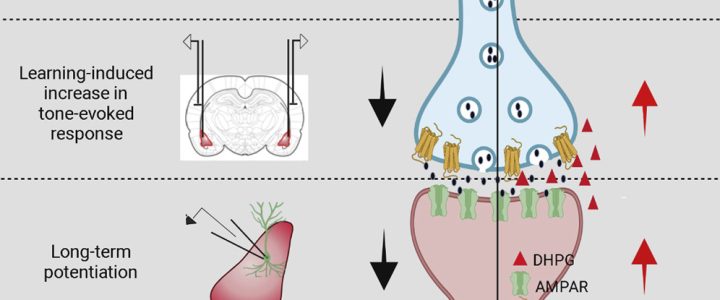
Cell Reports has published the results of the study “Correction of Amygdalar Dysfunction in Rat Model of Fragile X Syndrome” by FRAXA Investigator Dr. Sumatra Chattarji and his team at the National Centre for Biological Sciences in Bangalore, India. The researchers investigated the synaptic basis of deficient conditioned fear and its reversal in Fragile X syndrome rats.
Read moreCellular-Specific Therapeutic Targeting of Inhibitory Circuits in Fragile X Syndrome
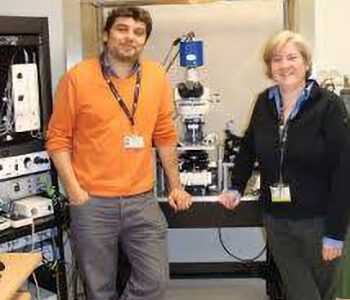
Studies have shown that the function of inhibitory networks is disturbed in Fragile X. This abnormality is not well understood but appears to be secondary to abnormalities in metabotropic glutamate and endocannabinoid systems. With a $90,000 grant from FRAXA, Dr. Molly Huntsman’s team examined how these networks interact and how inhibitory deficits can best be remedied.
Read moreScientists Find a New Way to Reverse Symptoms of Fragile X
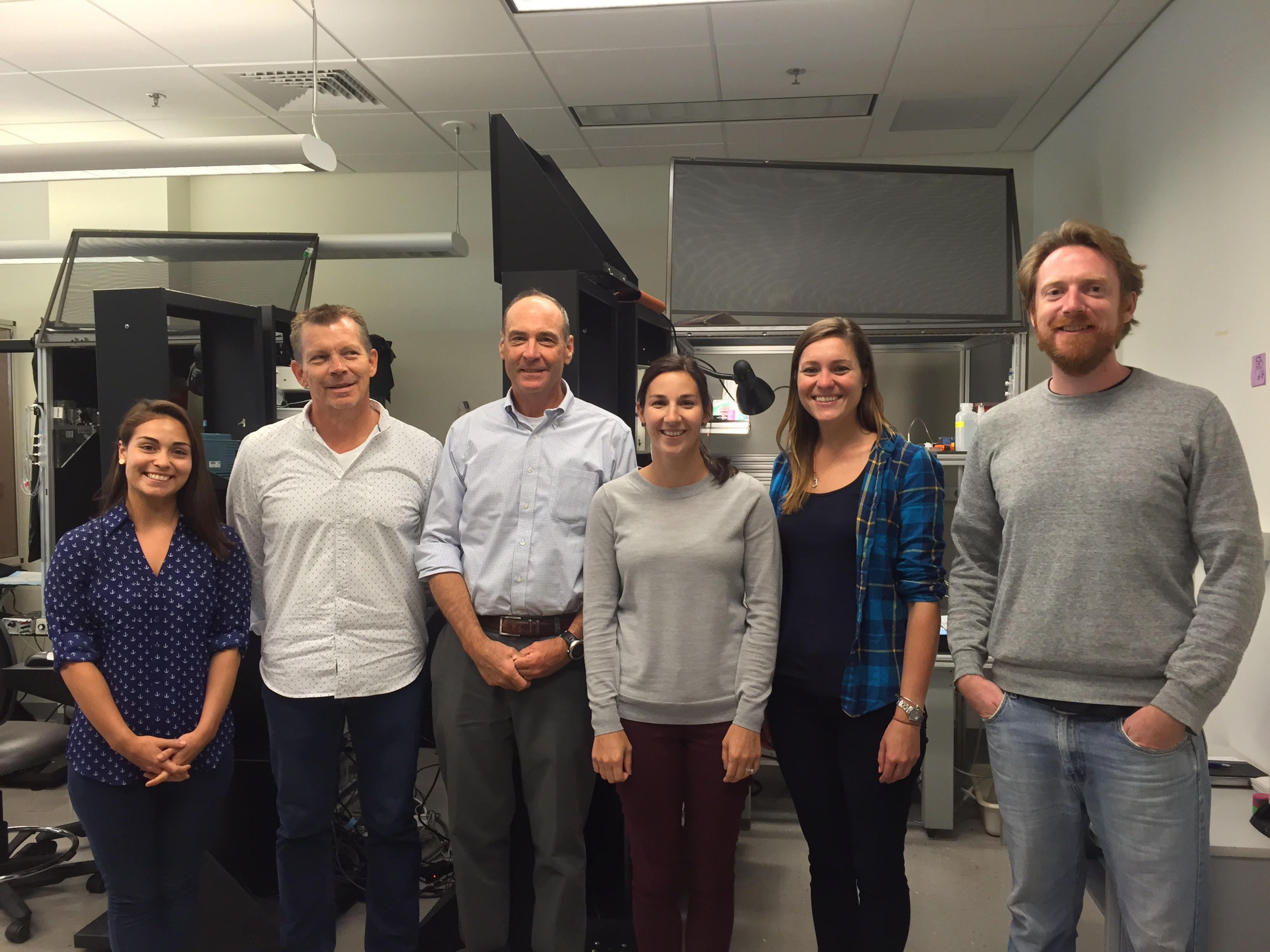
FRAXA Investigator and MIT Professor Mark Bear and his colleagues have identified a valuable new target for Fragile X therapeutics: GSK3 alpha. Several FRAXA research teams previously identified GSK3 beta as a treatment target for Fragile X. The catch is that, so far, GSK3 beta inhibitors have proven too toxic for regular use. Dr. Bear’s new discovery opens up the possibility of developing more selective compounds with less toxicity and fewer side effects. Interestingly, lithium inhibits both GSK3 versions – alpha and beta.
Read moreGanaxolone Fragile X Clinical Trial Showed Disappointing Results

Ganaxolone, an experimental drug from Marinus Pharmaceuticals which targets GABA receptors, did not show promise for Fragile X syndrome in a clinical trial.
Read moreScreening 2,320 FDA-Approved Drugs for Potential Treatment of Fragile X

FRAXA Research Foundation has awarded a $90,000 grant to Principal Investigator Dr. Sean McBride and Postdoctoral Fellow Dr. Karen Joyce, at Rowan University, to screen all 2,320 FDA-approved drugs on both mouse and fly models of Fragile X syndrome. Those drugs which show promise will be tested in more detail for potential to treat Fragile X in humans.
Read moreSpectrum News – Newly Discovered Aspects of Fragile X Spur Next Wave of Drugs

Many drugs for Fragile X syndrome have failed in large clinical trials, but candidates that target new aspects of the condition may fare better.
Read moreHow Promising is CRISPR for Fragile X?

Peter Todd, MD, PhD, Assistant Professor in the Department of Neurology in the University of Michigan Medical School, was awarded a FRAXA Research Grant for gene reactivation with the use of CRISPR. In this interview he tells us about CRISPR in Fragile X research, how realistic is it that it could turn the Fragile X gene back on, and if it can really cure Fragile X.
Read moreClinical Trial of Ganaxolone in Patients with Fragile X Syndrome

With a $90,000 grant from FRAXA Research Foundation funded during 2014-2015, Dr. Frank Kooy and colleagues at the University of Antwerp are conducting a double blind crossover trial of ganaxolone in patients with Fragile X syndrome. Results of this study were mixed (see Marinus: Results from Phase 2 Exploratory Clinical Study Support Continued Development of Ganaxolone in Fragile X Syndrome.)
Read moreRepurposing Available Drugs to Treat Fragile X Syndrome – FRAXA Initiatives
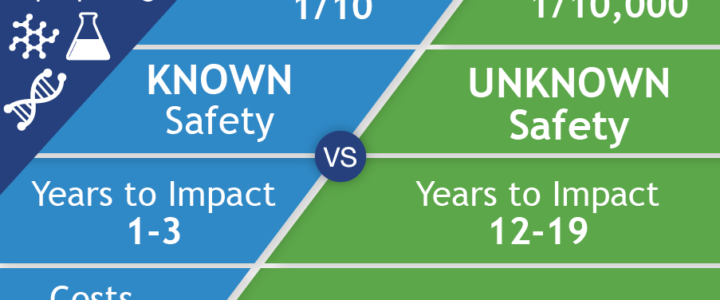
FRAXA Research Foundation was founded in 1994 to fund biomedical research aimed at finding a cure for Fragile X syndrome and, ultimately, autism. We prioritize translational research with the potential to lead to improved treatments for Fragile X in the near term. Our early efforts involved supporting a great deal of basic neuroscience to understand the cause of Fragile X. By 1996, these efforts had already begun to yield results useful for drug repurposing. To date, FRAXA has funded well over $25 million in research, with over $3 million of that for repurposing existing drugs for Fragile X.
Read morePIKE as a Central Regulator of Synaptic Dysfunction in Fragile X Syndrome

With $255,000 from FRAXA Research Foundation, Dr. Suzanne Zukin at Albert Einstein College of Medicine studied signalling pathways in Fragile X syndrome.
Read moreMark Bear’s Goal: Disease-Modifying Treatments for Fragile X

Researcher Mark Bear, PhD, Picower Professor of Neuroscience, sees success developing disease-modifying treatments for Fragile X syndrome and other developmental brain disorders. Finally, hope. And it comes from his lab, The Picower Institute for Learning and Memory, Department of Brain and Cognitive Sciences, Massachusetts Institute of Technology.
Read moreEnhancement of NMDA Receptor Signaling for the Treatment of Fragile X Syndrome
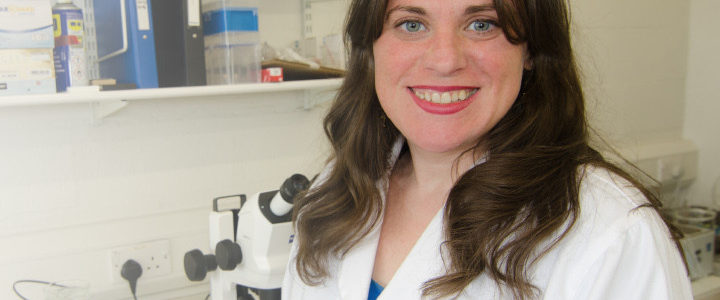
FRAXA Research Foundation funded a 2016-2017 Fellowship for Dr. Stephanie Barnes in the University of Edinburgh lab of Dr. Emily Osterweil. With this $90,000 award, the team is investigating NMDA signaling in fragile X syndrome mice.
Read moreAbnormalities of Synaptic Plasticity in the Fragile X Amygdala

With a $110,050 grant from FRAXA Research Foundation from 2005-2016, Dr. Sumantra Chattarji at the National Center for Biological Sciences researched how the amygdala is affected by Fragile X syndrome. Results published.
Read moreTargeting AMP-Activated Protein Kinase Pathway in Fragile X Syndrome

With a $100,000 grant from the FRAXA Research Foundation in 2015, Dr. Peter Vanderklish explored a novel strategy to treat Fragile X syndrome: AMPK activators. The good news is that there are FDA approved (for example, metformin) and naturally occurring AMPK activators (such as resveratrol, found in red wine).
Read moreFruit Flies to Model and Test Fragile X Treatments

Dr. Jongens and his collaborators have found an insulin-like protein in the fly brain that is overexpressed in the Fragile X mutant fly, leading to increased activity of the insulin signaling pathway. Furthermore, they found that certain behavioral patterns in the Fragile X flies can be rescued by expressing the FX gene just in insulin producing neurons in the fly brain. In the mutant, there are other changes in the signaling pathways, including a decrease in cAMP and elevation in PI3K, mTOR, Akt and ERK activity. They now propose to study 2 medicines used for diabetes: pioglitazone (increases cAMP and decreases Akt and ERK) and metformin (inhibits mTOR), in flies and mice to validate the potential efficacy of these novel therapeutics for Fragile X.
Read moreFragile X Treatment: New Research Directions
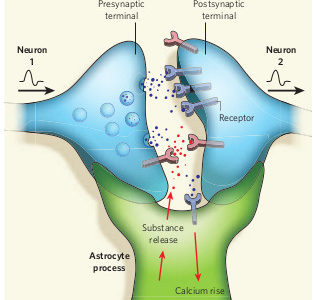
In the wake of negative results from several high-profile clinical trials in Fragile X, we find ourselves questioning many of our previous assumptions about the nature of this disorder. After all, understanding the basic pathology of disease is critical to development of new treatments — this is true across the board, in all branches of medicine.
Read moreSeizures in Fragile X Syndrome and Therapeutic Potential of NMDA Receptor Antagonists

With a $90,000 grant from the FRAXA Research Foundation, Dr. Robert Wong is investigating how seizures are generated in Fragile X neurons. More generally, he is looking at how synapses are modified to enable learning and memory and how this process is impaired in Fragile X.
Read moreWhy Did Fragile X Clinical Trials of mGluR Antagonists Fail?

by Michael Tranfaglia, MD. In my opinion, the Fragile X clinical trials of AFQ056 sponsored by Novartis failed because of a dose range that was inadequate for Fragile X, and because of the unexpected development of tolerance.
Read moreTranslation-Independent Functions of FMRP in Excitability, Synaptic Transmission and Plasticity

With a $140,000 grant from FRAXA Research Foundation, Dr. Vitaly Klyachko and team at Washington University explored STP (short-term plasticity) in Fragile X, namely looking at presynaptic calcium dynamics as a major underlying cause of the STP defects.
Read moreThe mTOR Pathway in Fragile X Syndrome
With a $90,000 grant from FRAXA Research Foundation over 2012-2013, Dr. Eric Klann and Postdoctoral Fellow Dr. Aditi Bhattacharrya of New York University investigated alterations in the mTOR pathway in Fragile X syndrome – which is also known to be defective in several forms of autism. Their work was published in September 2012 and received international attention.
Read moreLovastatin Discovery in Fragile X Mice Leads FRAXA to Fund Clinical Trials

Dr. Emily Osterweil was awarded the FRAXA Pioneer Award at the opening dinner of the 2011 FRAXA Investigators Meeting in Southbridge, MA for her work demonstrating that Lovastatin could treat Fragile X. Dr. Osterweil conducted her experiments in the MIT laboratory of Dr. Mark Bear and has since established her own laboratory at the University of Edinburgh. The team discovered that lovastatin, a drug widely prescribed for high cholesterol, can correct excess hippocampal protein synthesis in the mouse model of FXS and can prevent epileptogenesis. The work is published in the prestigious neuroscience journal Neuron: Lovastatin Corrects Excess Protein Synthesis and Prevents Epileptogenesis in a Mouse Model of Fragile X Syndrome.
Read moreEndocannabinoid Mediated Synaptic Plasticity in Fragile X Mice

With a $90,000 grant from FRAXA Research Foundation over two years, Drs. Olivier Manzoni and Daniela Neuhofer researched the relationship between Fragile X syndrome and the areas of the brain that are involved in reward processing, regulation of emotional behavior and emotional memory as well as attention, planning and working memory.
Read moreTargeting mGluR-LTD to Treat Fragile X Syndrome

With grants from FRAXA Research Foundation from 2000-2010, Dr. Kimberly Huber and her team at the University of Texas conducted several studies on the relationship between mGluR5 and Fragile X syndrome. Dr. Huber made the original discovery of the mGluR Theory of Fragile X when she was a postdoctoral fellow in the lab of Dr. Mark Bear, with her first FRAXA grant in 2000.
Read morePreclinical Evaluation of Serotonin Receptor Agonists as Novel Pharmacological Tools in Fragile X Syndrome
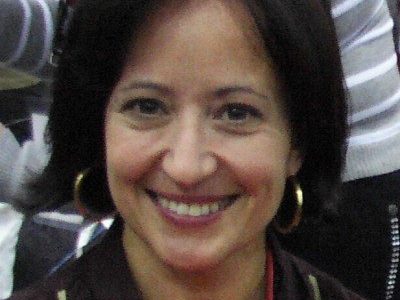
With a $66,000 grant from FRAXA Research Foundation in 2013, Dr. Lucia Ciranna and her team from the Universita di Catania tested if specific serotonins could reverse abnormal phentotypes found in Fragile X syndrome.
Read more
